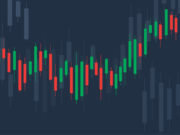Oil is up slightly after OPEC and allies agreed to an historic production cut.
All agreed to a cut of 9.7 million barrels a day, and represents the single biggest output cut in history, and puts to bed the Russia-Saudi price war. Initially, the group agreed to cut production by up to 10 million barrels a day. However, Mexico only agreed to cut by 100,000 barrels a day, instead of the expected 3400,000 barrels.
Instead, the group will now cut by 9.7 million barrels beginning May 1, 2020 and will only extend until the end of June 2020. Cuts will then taper off to 7.7 million a day from July 2020 through the end of the year. Then, it will taper off again to 5.8 million from January 2021 through April 2020.
Unfortunately, it’s too little, too late.
“It’s simply too late to prevent a super-large inventory build of over one billion barrels between mid-March and late May and to stop spot prices from falling into single digits,” says Ed Morse, Citi’s global head of commodities, as quoted by CNBC.
“The output cut may help somewhat, but the market situation remains stacked against the producers, especially in the short-term,” added Again Capital’s John Kilduff. “Prices will likely grind lower, as the global backlog of crude oil grows. A retest of the $20.00 level is likely over the next few weeks.”
Goldman Sachs also says oil prices would continue to fall in the coming weeks, reasoning that a “historic yet insufficient” deal by major oil producers to cut output is unlikely to offset a coronavirus-led demand rout, as noted by Reuters.
Worse, we’re running out of places to store supply.
It’s so bad some tankers are storing global oil supply at sea. According to President Trump added, “We don’t have room to store oil anymore. We are using ships to store it. There’s never been a glut like this. We have to get rid of this tremendous supply,” as quoted by Forbes.
While the cut is great news, it won’t prop up oil prices any time soon.
We have a good deal of supply, coupled with low demand to contend with at the moment.





